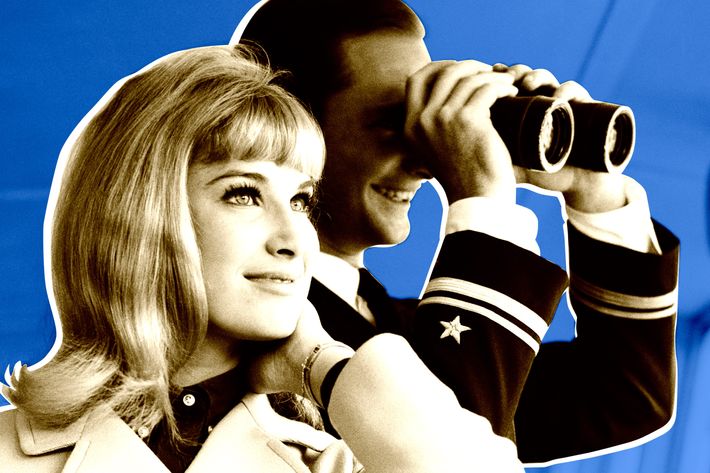Rich People Literally See the World Differently

The way you view the world depends on the culture you come from — in a granular, second-by-second sense. If you present a Westerner and an East Asian with the same visual scene, for instance, the former is more likely to focus on individual objects, and the latter will likely take in more of the scene as a whole. East Asians are more holistic in their thinking, the research indicates; Westerners are more analytic.
The same thing is happening with people who are from the same country, but belong to different social classes. With America's top one percent of earners earning 81 times the average of the bottom 50 percent, the research shows how the wealthy and the working classes really do live in different cultures, and thus see the world in different ways.
One of the most powerful examples come from Michael Varnum, a neuroscientist at Arizona State University. In a 2015 paper on empathy, he and his colleagues recruited 58 participants for a brain-imaging study: First, the participants filled out a self-report on their social class (level of parents' education, family income, and the like) before sitting down for an EEG session. In the brain-imaging task, participants were shown neutral and pained faces while they were told to look for something else (the faces were a "distractor," in the psych argot, so hopefully the participants wouldn't know they were being tested for empathy).
In something of a dark irony, the respondents of higher socioeconomic status rated themselves as more empathic — a "better-than-average effect" that Varnum followed up on in a separate study — when in reality the opposite was true. The results "show that people who are higher in socioeconomic status have diminished neural responses to others' pain," the authors write. "These findings suggest that empathy, at least some early component of it, is reduced among those who are higher in status." And unlike self-reports, brain imaging sidesteps "social desirability bias," where people want to give replies that make them look good or more empathic. "If you're looking at pictures of people in pain or not in pain, it's pretty unlikely that you know how to enhance those brain responses," Varnum tells Science of Us. Moreover, in a 2016 study, Varnum and colleagues found evidence suggesting that people from lower social classes have a more sensitive mirror neuron system — which is thought to simulate the things you see others experience — when watching a video of hand movements. "Our cognitive systems, the degree to which they're attuned to other people in the environment, is affected by our own social class," he says.
Another study, out last October in Psychological Science, further shows how attention breaks down along class lines. A research team lead by NYU doctoral candidate Pia Dietze measured participants' attunement to people or things in three different experiments. In the first, they stopped 61 people on New York City streets, and asked them to put on a Google Glass device and walk around one block for about a minute, looking at whatever captured their gaze — with higher-class participants having reliably shorter gazes. In a second experiment, a total of 158 undergrads were recruited to look at 41 photographs of different cities. Here, working-class participants had a 25 percent longer dwell time, on average, than upper-middle-class peers. In a third experiment, almost 400 participants recruited online had to determine if icons depicting people or objects changed in the course of milliseconds — and consistent with the other results, working-class people were faster in catching changes in faces than upper-middle-class participants. Together, the results show "social class cultures can influence social attention (attention towards human) in a deep and pervasive manner," Dietze says. Your class shapes the "ecology" that you grow up in, and that anchors your habits of attention.
There are multiple interpretations for why lower-class people are more attuned to people around them. It may be that growing up poorer means that you have to rely on others more; it may also mean that you live in a less-secure environment, so you need to attend to others to keep yourself safe. Varnum and Dietze presented at this year's meeting of Society for Personality and Social Psychology, where I met them, and Varnum says that each study speaks to a broader notion of how higher-status people are more focused on their own goals and desires. They also ignore people a little more, maybe because they can afford to. "If you have more power and status, you may not have to care as much about what people are thinking and feeling; and also, if you're in a resource-scarce environment, where things are a little more unpredictable and maybe a little more dangerous, it would be very adaptive to pay attention to others, how they're feeling and what they're going to do," he says. In many ways, privilege is invisible; it also shapes what's visible to us.
^ed

No comments:
Post a Comment